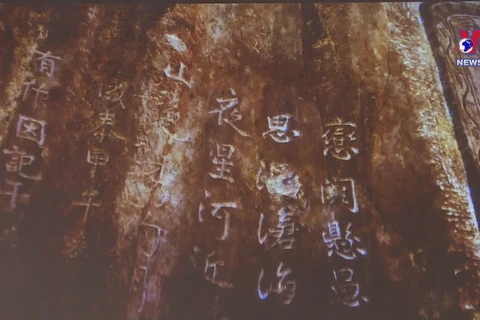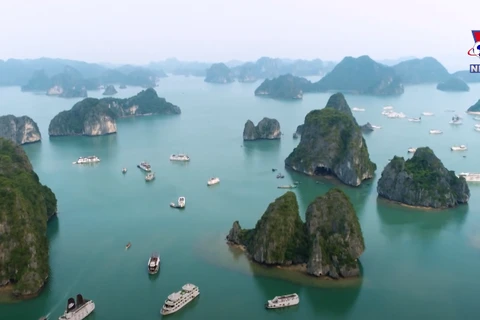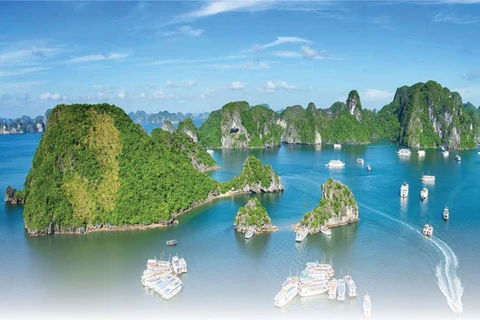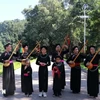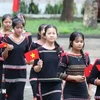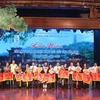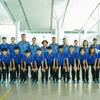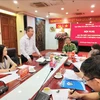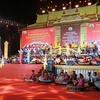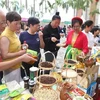Hanoi (VNA) - Managers, experts and scientists shared their views on cultural and natural heritage’s contributions to Vietnam's sustainable development as well as socio-economic development in localities at an international conference in Hanoi on March 24.
The conference, themed “Promoting the role of world cultural and natural heritage in sustainable development in Vietnam,” was jointly held by the Ministry of Foreign Affairs, the Vietnam National Commission for UNESCO and the Hanoi People’s Committee.
It formed part of activities marking 35 years since Vietnam ratified the 1972 Convention Concerning the Protection of the World Cultural and Natural Heritage.
The participants reviewed the protection and promotion of world cultural and natural heritage values in Vietnam, and exchanged experience in state management and the optimisation of world heritage values in local socio-economic development.
Vice Chairman of the Hanoi Municipal People’s Committee Ha Minh Hai said after the Thang Long Imperial Citadel won the UNESCO recognition in 2010, the Government, ministries, agencies and local authorities have focused on preserving the site and promoting its historical, cultural, architectural and artistic values.
Communications activities have been stepped up, with a range of exhibitions which attracted crowds of visitors, he said, adding that many research studies have also been carried out.
At the conference, heritage management boards looked into obstacles to heritage preservation and management, and how to balance between conservation and development.
Present at the event, Director of the UNESCO World Heritage Centre Lazare Eloundou Assomo spoke of steps to remove the difficulties and shared international experience in this regard.
Some lessons were drawn in the conference, such as perfecting legal foundations in heritage management, raising public awareness of the work, enhancing environmental protection, strengthening international cooperation, improving capacity of heritage managers, and applying IT in heritage management and conservation./.
The conference, themed “Promoting the role of world cultural and natural heritage in sustainable development in Vietnam,” was jointly held by the Ministry of Foreign Affairs, the Vietnam National Commission for UNESCO and the Hanoi People’s Committee.
It formed part of activities marking 35 years since Vietnam ratified the 1972 Convention Concerning the Protection of the World Cultural and Natural Heritage.
The participants reviewed the protection and promotion of world cultural and natural heritage values in Vietnam, and exchanged experience in state management and the optimisation of world heritage values in local socio-economic development.
Vice Chairman of the Hanoi Municipal People’s Committee Ha Minh Hai said after the Thang Long Imperial Citadel won the UNESCO recognition in 2010, the Government, ministries, agencies and local authorities have focused on preserving the site and promoting its historical, cultural, architectural and artistic values.
Communications activities have been stepped up, with a range of exhibitions which attracted crowds of visitors, he said, adding that many research studies have also been carried out.
At the conference, heritage management boards looked into obstacles to heritage preservation and management, and how to balance between conservation and development.
Present at the event, Director of the UNESCO World Heritage Centre Lazare Eloundou Assomo spoke of steps to remove the difficulties and shared international experience in this regard.
Some lessons were drawn in the conference, such as perfecting legal foundations in heritage management, raising public awareness of the work, enhancing environmental protection, strengthening international cooperation, improving capacity of heritage managers, and applying IT in heritage management and conservation./.
VNA

